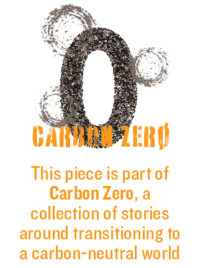December 28, 2021 —  Would you alter the way you do things to help reduce the severity of climate change? If so, you’re not alone. A recent survey of individuals in 17 “advanced economies” found that 80% of respondents were willing to modify some aspects of their work and lifestyle to help mitigate the threat.
Would you alter the way you do things to help reduce the severity of climate change? If so, you’re not alone. A recent survey of individuals in 17 “advanced economies” found that 80% of respondents were willing to modify some aspects of their work and lifestyle to help mitigate the threat.
The survey, conducted in early 2021, assessed the opinions of 16,254 individuals from 16 “advanced economies” by phone and another 2,596 in the U.S. via the internet. It included a broad range of questions related to beliefs and attitudes regarding climate change actions. Countries included in the survey were Canada, Belgium, France, Germany, Greece, Italy, the Netherlands, Spain, Sweden, the UK, the U.S., Australia, Japan, New Zealand, Singapore, South Korea and Taiwan.
A drill-down into the data by traits such as gender, nationality and political persuasion offers insights for individuals, organizations, governments and others seeking to mobilize individuals to help mitigate risks. Among the more specific findings:
- Individuals on the political left tended to be more willing to make changes than those on the ideological right.
- Young adults were more likely to be amenable to change than older adults.
- Higher educational attainment was positively correlated with more willingness to change.
The survey also found that willingness to change varied from one country to another. The range in proportion of respondents “willing to make … changes about how you live and work to help reduce the effects of global climate change” ranged from 93% for respondents from Italy to 55% for those from Japan.
The survey also assessed a number of other attitudes and beliefs related to climate change and climate action. These included how concerned respondents were that climate change would harm them personally; how well they think society is responding; and whether climate action is good for the economy. Again, responses were broken down by demographic group, yielding some additional insights:
- Except for Sweden, most respondents were at least somewhat concerned that climate change will hurt them. This was generally more true for ideological left than right, for women than for men, and for young people than for older adults.
Respondents were generally favorable regarding how well their own society is dealing with climate change. Results were mixed as to whether the international community is doing a good job.
Overall, the survey offered encouraging news for those hoping to make inroads into climate change, noting that while it “reveals a growing sense of personal threat from climate change among many of the publics polled,” it also indicates that “[p]ublic concern about climate change appears alongside a willingness to reduce its effects by taking personal steps.”
Related Posts
Ensia shares solutions-focused stories free of charge through our online magazine and partner media. That means audiences around the world have ready access to stories that can — and do — help them shape a better future. If you value our work, please show your support today.
Yes, I'll support Ensia!


